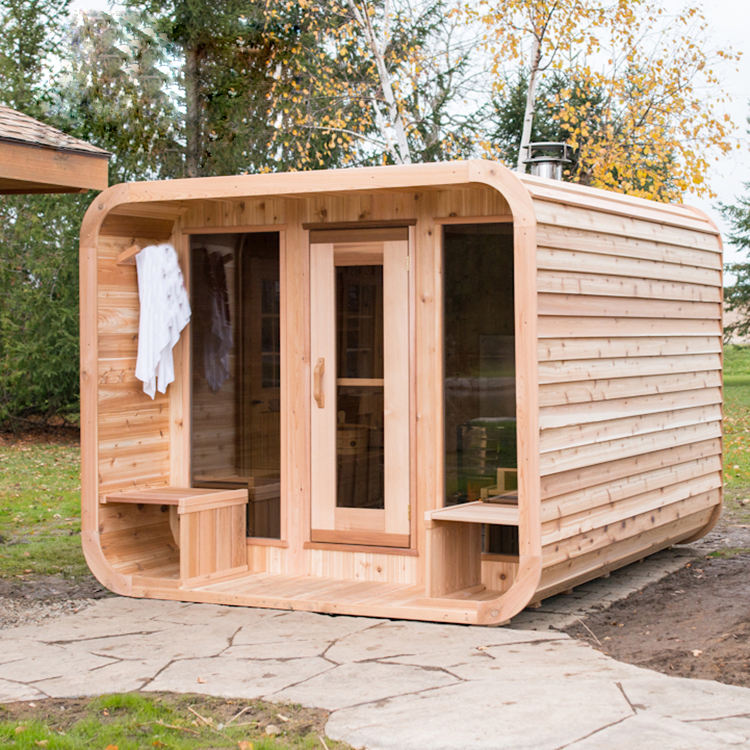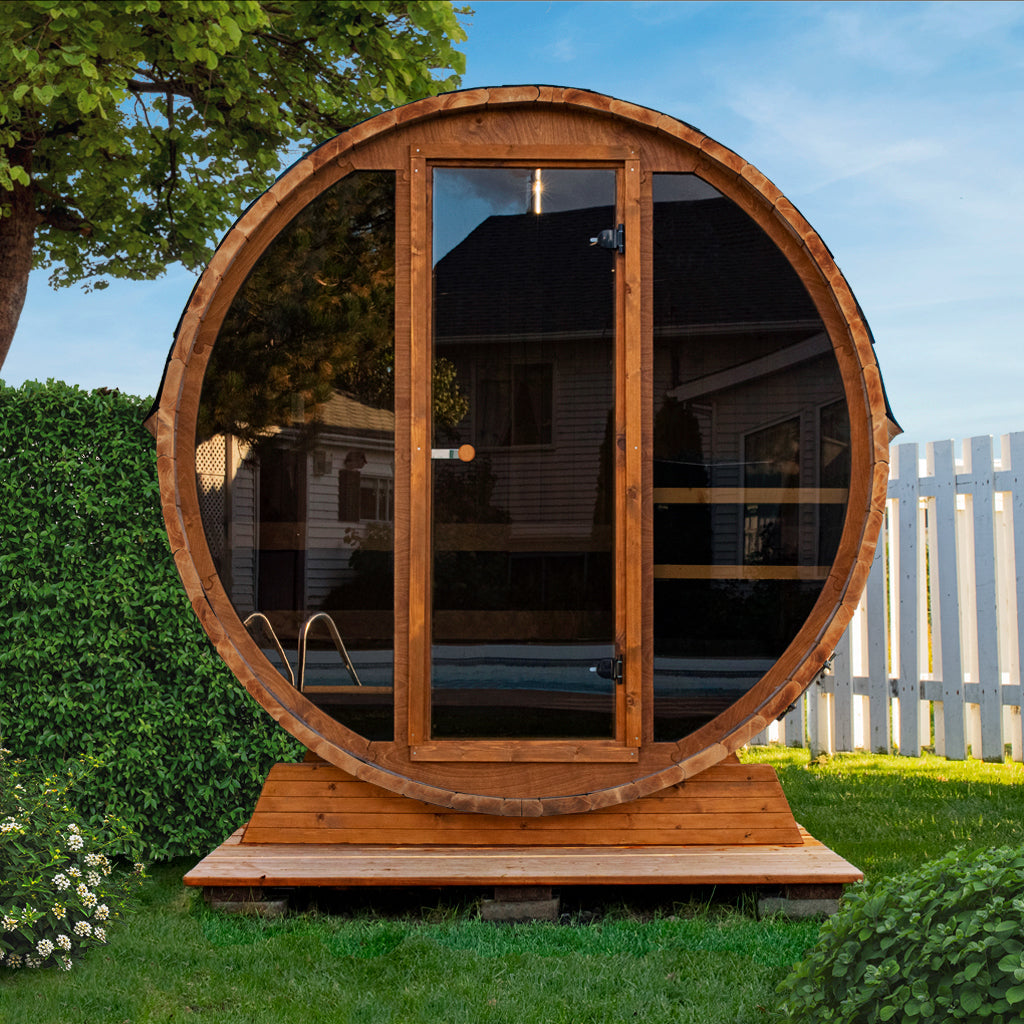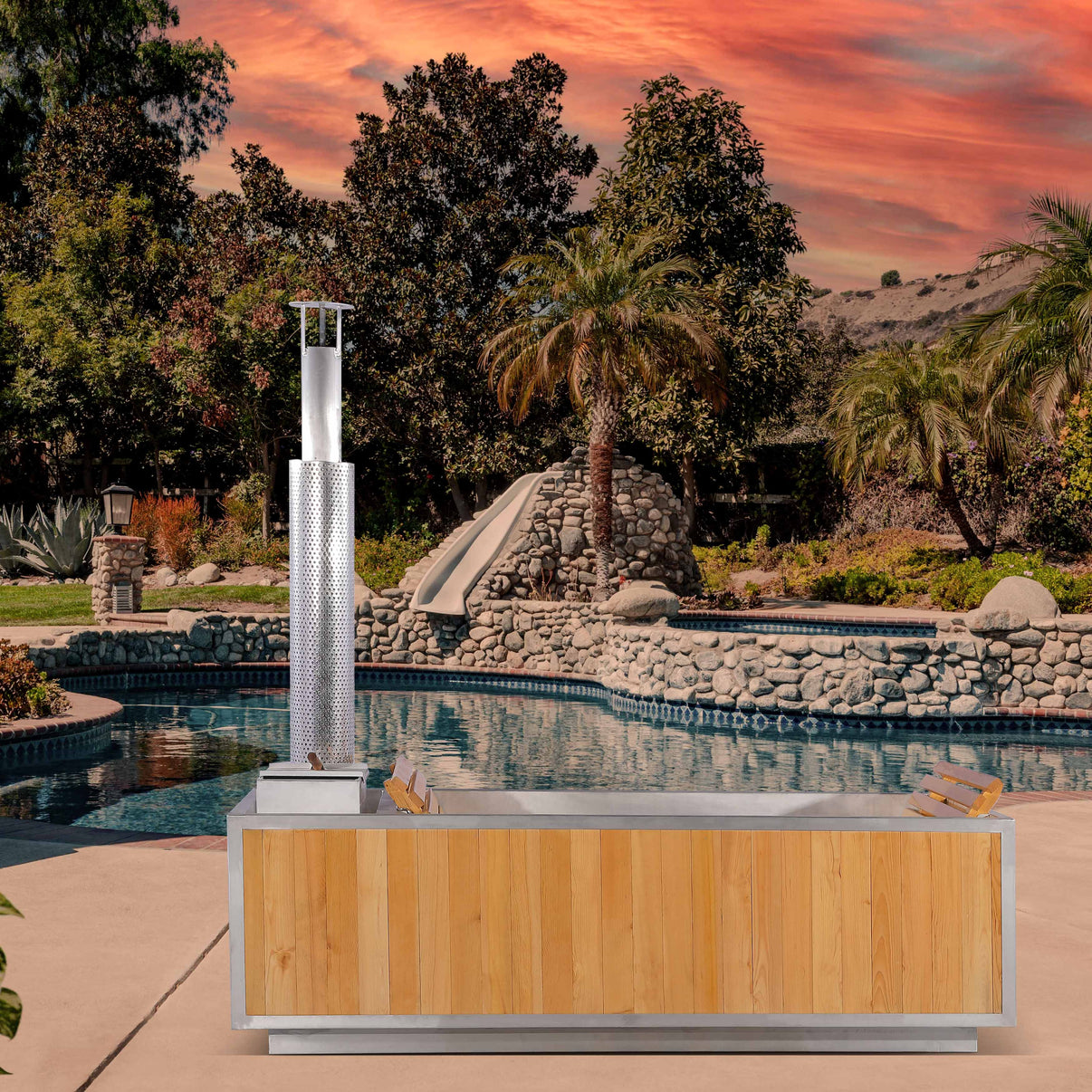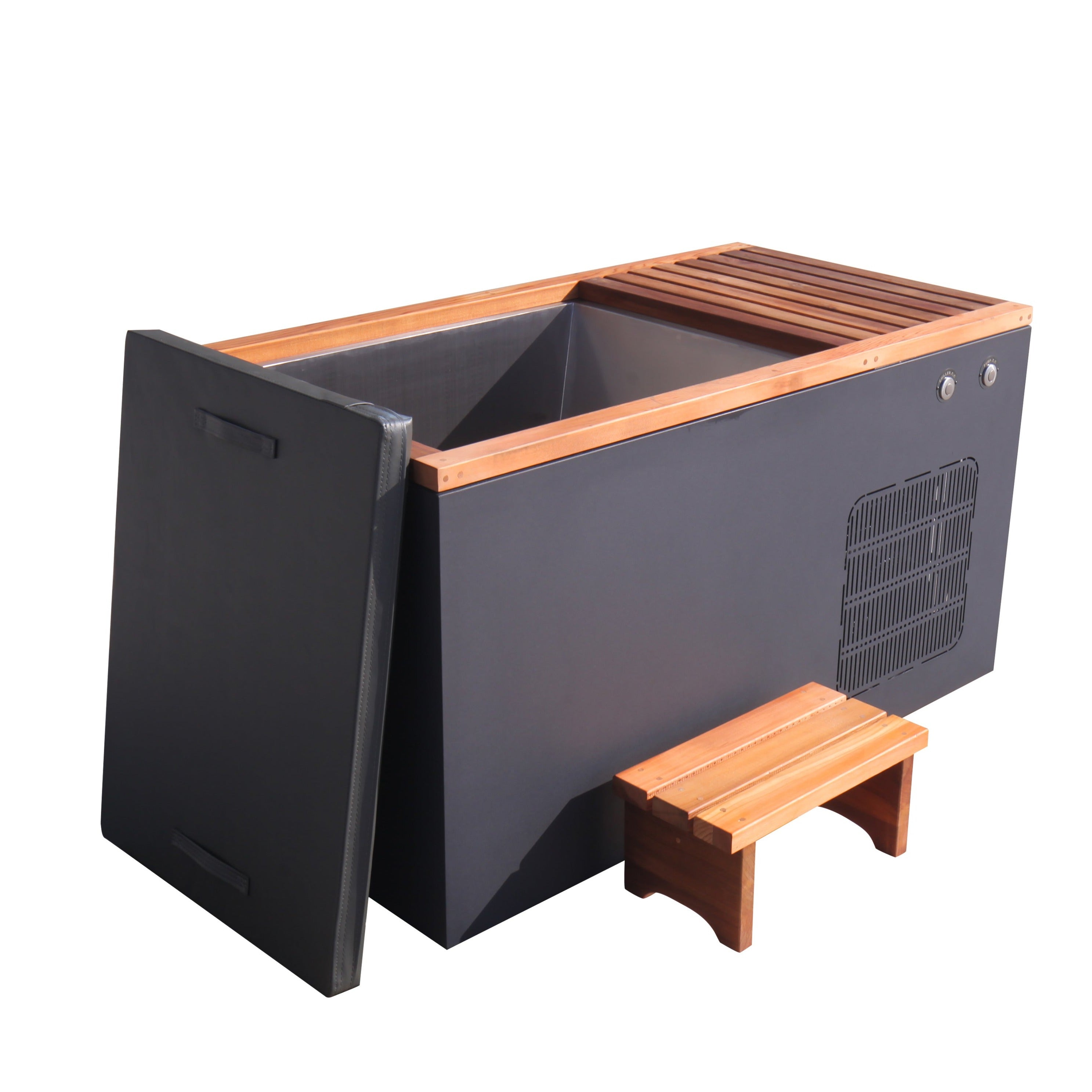How to choose between outdoor sauna and indoor sauna
Saunas have been around for centuries and have been a popular way to relax and unwind. They offer a number of health benefits, including detoxification, improved circulation, and stress relief. With the increasing popularity of home saunas, many people wonder whether they should choose an outdoor or indoor sauna. In this post, we will discuss the pros and cons of each option to help you make an informed decision.
Indoor Saunas
Indoor saunas are the most common type of saunas and are typically found in homes, gyms, and spas. They can be installed in a variety of locations, including bathrooms, basements, and even closets. Here are some of the advantages of indoor saunas:
1. Convenience: Indoor saunas are very convenient since they can be used year-round regardless of the weather conditions.
2. Privacy: Indoor saunas offer privacy, which is important for those who want to use the sauna without being seen by others.
3. Customization: Indoor saunas can be customized to fit your specific needs and preferences. You can choose the size, shape, and materials used to build your sauna.
4. Safety: Indoor saunas are generally safer than outdoor saunas since they are protected from the elements.
However, there are also some disadvantages to indoor saunas:
1. Space: Indoor saunas require space in your home, which may not be available for everyone.
2. Ventilation: Indoor saunas require proper ventilation to prevent mold growth and ensure air quality. This can be difficult to achieve in some homes.
Outdoor Saunas
Outdoor saunas are becoming increasingly popular due to their unique benefits and aesthetic appeal. They can be built in a variety of locations, including backyards, gardens, and even on rooftops. Here are some of the advantages of outdoor saunas:
1. Aesthetic appeal: Outdoor saunas can be designed to blend in with your backyard or garden, creating a beautiful and relaxing atmosphere.
2. Space: Outdoor saunas do not require space inside your home, making them a great option for those with limited indoor space.
3. Ventilation: Outdoor saunas do not require as much ventilation as indoor saunas since they are naturally ventilated by the outdoors.
4. Cost: Outdoor saunas can be less expensive than indoor saunas since they do not require as much construction and ventilation.
However, there are also some disadvantages to outdoor saunas:
1. Outdoor saunas may not be as accessible as indoor saunas since they require you to go outside to use them.
Conclusion
Choosing between an outdoor and indoor sauna ultimately comes down to personal preference and specific needs. If you have limited space inside your home or want a beautiful outdoor retreat, an outdoor sauna may be the best choice for you. If you want convenience and privacy, an indoor sauna may be the better option. Regardless of which option you choose, make sure to do your research and invest in a high-quality sauna that will provide you with years of relaxation and health benefits.
Indoor Saunas
Indoor saunas are the most common type of saunas and are typically found in homes, gyms, and spas. They can be installed in a variety of locations, including bathrooms, basements, and even closets. Here are some of the advantages of indoor saunas:
1. Convenience: Indoor saunas are very convenient since they can be used year-round regardless of the weather conditions.
2. Privacy: Indoor saunas offer privacy, which is important for those who want to use the sauna without being seen by others.
3. Customization: Indoor saunas can be customized to fit your specific needs and preferences. You can choose the size, shape, and materials used to build your sauna.
4. Safety: Indoor saunas are generally safer than outdoor saunas since they are protected from the elements.
However, there are also some disadvantages to indoor saunas:
1. Space: Indoor saunas require space in your home, which may not be available for everyone.
2. Ventilation: Indoor saunas require proper ventilation to prevent mold growth and ensure air quality. This can be difficult to achieve in some homes.
Outdoor Saunas
Outdoor saunas are becoming increasingly popular due to their unique benefits and aesthetic appeal. They can be built in a variety of locations, including backyards, gardens, and even on rooftops. Here are some of the advantages of outdoor saunas:
1. Aesthetic appeal: Outdoor saunas can be designed to blend in with your backyard or garden, creating a beautiful and relaxing atmosphere.
2. Space: Outdoor saunas do not require space inside your home, making them a great option for those with limited indoor space.
3. Ventilation: Outdoor saunas do not require as much ventilation as indoor saunas since they are naturally ventilated by the outdoors.
4. Cost: Outdoor saunas can be less expensive than indoor saunas since they do not require as much construction and ventilation.
However, there are also some disadvantages to outdoor saunas:
1. Outdoor saunas may not be as accessible as indoor saunas since they require you to go outside to use them.
Conclusion
Choosing between an outdoor and indoor sauna ultimately comes down to personal preference and specific needs. If you have limited space inside your home or want a beautiful outdoor retreat, an outdoor sauna may be the best choice for you. If you want convenience and privacy, an indoor sauna may be the better option. Regardless of which option you choose, make sure to do your research and invest in a high-quality sauna that will provide you with years of relaxation and health benefits.





